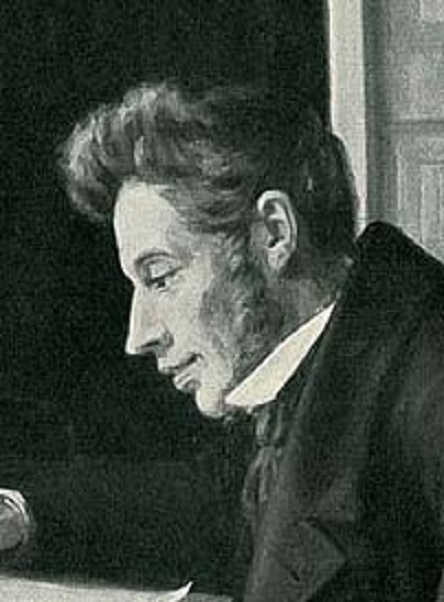Of purpose of prayer
| Date :08-Oct-2024 |
Soren KierkegaardBy Vijay Phanshikar :“The function of prayer is not toinfluence God, but rather to changethe nature of the one who prays.”– Soren Kierkegaard,19th-century Danish philosopher,theologian, literary figure,father of existentialist philosophy.
WHAT a profound and thought-provoking statement, this!
Considered deeply, one does realise it has the power to alter the general
perception about prayer. It proposes and defines the actual purpose of prayer -- as a step to self-discovery and subsequent
self-recovery from whatever may be
undesirable in one’s personality.
So, if a prayer talks of sowing light where there is darkness, for example, the proposal is that the person who prays must step out of his or her shell or cocoon and light a lamp -- so that darkness is dispelled. If the prayer seeks, in effect, to understand rather than be understood, then it
proposes that the person who is praying must understand others rather than expecting others to understand him
or her.
The onus, thus, is on the person who prays!
Obviously, the prayer is not supposed to bind God in a commitment. Of course, Soren Kierkegaard does not suggest that God does not exist -- no matter his
existentialist thought. But he insists that God is not something that one can chain to a request and make him conduct Himself in a particular manner as desired by the human person engaged in prayer.
The prayer, according to Soren Kierkegaard, is a self-talk, so to say,
making strong auto-suggestion about mending one’s own thought-process and personal flaws. Thus the aim of prayer, according to him, is to mend the untoward bend human personality assumes for whatever reason -- and make it more amenable to the process of self-discovery and self-recovery to become a better human being.
Nobody would ever have any objection to this straight-forward approach to
self-correction with God in witness of the silent, inner process.
In other words, prayer is a process of cleansing of one’s inner being or core with patience and faith -- not just in God but also in the power of human resilience to bounce back even after making mistakes, even after sinking to new lows, even after hurting one’s sense of well being and also that of others. Prayer, thus, is an assurance to self that
recovery from blight is possible if one has the sense and loyalty to have God on one’s side.
For Soren Kierkegaard, again, God may not be the entity that resides in the thought of a believer, so to say.
Yet,
obviously, he has understood what prayer is actually capable of achieving -- if
considered in the right spirit.
True, most prayers seek from God the grant of certain facility -- such as ‘God, grant me the serenity ...’ ! That means, the person who prays seeks God’s power to shower upon him -- or her -- certain
calmness of mind so that he -- or she -- can get engaged in the process of
self-correction.
In other words, the prayer, thus, has the amazing power to help the person evolve over and above his flaws and foibles and faults -- appealing to the sublime side of his being, urging the person’s conscience, his or her sense of right and wrong in
personal or larger perspective.
Is this not a universal experience
as well!
